第50章 TWO 1921-1928 Ralph(30)
Lambing and the hectic weeks that followed it were busiest of all in the sheep calendar. Every lamb born had to be caught; its tail was ringed, its ear marked, and if it was a male not required for breeding it was also castrated. Filthy, abominable work which soaked them to the skin with blood, for there was only one way to wade through thousands upon thousands of male lambs in the short time available. The testicles were popped out between the fingers and bitten off, spat on the ground. Circled by tin bands incapable of expanding, the tails of male and female lambs alike gradually lost their vital bloody supply, swelled, withered and dropped off. These were the finest wool sheep in the world, raised on a scale unheard of in any other country, and witha paucity of manpower. Everything was geared to the perfect production of perfect wool. There was crutching; around the sheep's rear end the wool grew foul with excrement, fly-blown, black and lumped together in what were called dags. This area had to be kept shaven close, or crutched. It was a minor shearing job but one far less pleasing, stinking and fly-ridden, and it paid better rates. Then there was dipping: thousands upon thousands of bleating, leaping creatures were hounded and yanked through a maze of runs, in and out of the phenyl dips which rid them of ticks, pests and vermin. And drenching: the administration of medicine through huge syringes rammed down the throat, to rid the sheep of intestinal parasites.
For work with the sheep never, never ended; as one job finished it became time for another. They were mustered and graded, moved from one paddock to another, bred and unbred, shorn and crutched, dipped and drenched, slaughtered and shipped off to be sold. Drogheda carried about a thousand head of prime beef cattle as well as its sheep, but sheep were far more profitable, so in good times Drogheda carried about one sheep for every two acres of its land, or about 125,000 altogether. Being merinos, they were never sold for meat; at the end of a merino's wool-producing years it was shipped off to become skins, lanolin, tallow and glue, useful only to the tanneries and the knackeries.
Thus it was that gradually the classics of Bush literature took on meaning. Reading had become more important than ever to the Clearys, isolated from the world on Drogheda; their only contact with it was through the magic written word. But there was no lending library close, as there had been in Wahine, no weekly trip into town for mail and newspapers and a fresh stack of library books, as there had been in Wahine. Father Ralph filled the breach by plundering the Gillanbone library, his own and the convent's shelves, and found to his astonishment that before hewas done he had organized a whole Bush circulating library via Bluey Williams and the mail truck. It was perpetually loaded with books-worn, thumbed volumes which traveled down the tracks between Drogheda and Bugela, Dibban-Dibban and Braichy Pwll, Cunnamutta and Each-Uisge, seized upon gratefully by minds starved for sustenance and escape. Treasured stories were always returned with great reluctance, but Father Ralph and the nuns kept a careful record of what books stayed longest where, then Father Ralph would order copies through the Gilly news agency and blandly charge them to Mary Carson as donations to the Holy Cross Bush Bibliophilic Society. Those were the days when a book was lucky to contain a chaste kiss, when the senses were never titillated by erotic passages, so that the demarcation line between books meant for adults and those meant for older children was less strictly drawn, and there was no disgrace for a man of Paddy's age to love best the books his children also adored: Dot and the Kangaroo, the Billabong series about Jim and Norah and Wally, Mrs. Aeneas Gunn's immortal We of the Never-Never. In the kitchen at night they would take turns to read the poems of Banjo Paterson and C. J. Dennis out loud, thrilling to the ride of "The Man from Snowy River," or laughing with "The Sentimental Bloke" and his Doreen, or wiping away surreptitious tears shed for John O'Hara's "Laughing Mary."
I had written him a letter which I had, for want of better Knowledge, sent to where I met him down the Lachlan years ago; He was shearing when I knew him, so I sent the letter to him, Just on spec, addressed as follows, "Clancy, of the Overflow."
And an answer came directed in a writing unexpected (and I think the same was written with a thumb-nail dipped in tar); 'Twas his shearing mate who wrote it, and verbatim I will quote it: "Clancy's gone to Queensland droving, and we don't know where he are."
In my wild erratic fancy visions come to me of Clancy Gone a-droving "down the Cooper" where the Western drovers go; As the stock are slowly stringing Clancy rides behind them singing, For the drover's life has pleasures that the townsfolk never know. And the bush has friends to meet him, and their kindly voices greet him In the murmur of the breezes and the river on its bars, And he sees the vision splendid of the sunlit plains extended, And at night the wondrous glory of the everlasting stars.